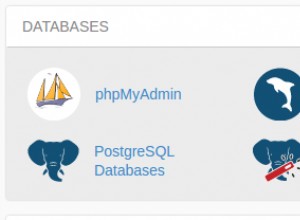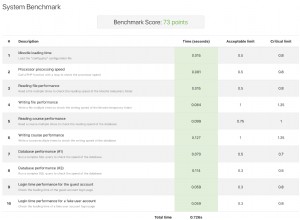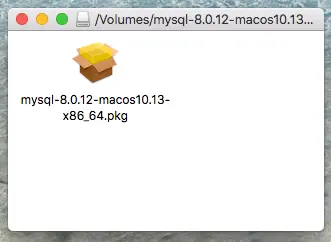Ich persönlich bin nicht sehr gut darin, MySQL-Abfragezeichenfolgen zu erstellen. Ich verwende im Allgemeinen eine ähnliche SQL-Compilerklasse (denken Sie daran, dies ist nur eine schnelle). Es ermöglicht die Bindung, die Sie benötigen, insbesondere mit $_GET Werte wie Sie haben:
class ItemQueue
{
protected $sql;
protected $wherevals;
public $bind;
public $compiled;
public function select($values = false)
{
$this->sql[] = "select";
if($values == false)
$this->sql[] = "*";
else
$this->sql[] = $values;
return $this;
}
public function from($table = false)
{
if($table ==false)
return $this;
$this->sql[] = "from `$table`";
return $this;
}
public function where($values = array(),$op = 'and')
{
if(!empty($values)) {
$this->sql[] = 'where';
foreach($values as $key => $values) {
$this->wherevals[] = $key.' = :'.$key;
// Bind values for injection protection
$this->bind[":$key"] = $values;
}
$this->sql[] = implode(" $op ",$this->wherevals);
// This part is a bit jenky but you get the idea
$this->sql[] = "and active = '1'";
}
return $this;
}
public function customsql($values = false)
{
if($values != false) {
$this->sql[] = $values;
}
return $this;
}
public function Fetch()
{
// Implode entire sql statement
$this->compiled = implode(" ", $this->sql);
return $this;
}
}
// Post/Get values
$_POST['cat'] = 'cattest';
$_POST['city'] = 'Reno';
$_POST['state'] = 'Nevada';
// Arbitrary limits
$limit = 1;
$limitvalue = 1;
// Create instance
$tester = new ItemQueue();
// Just set some array filtering/validating
if(isset($_POST['cat']) && !empty($_POST['cat']))
$array['cat'] = $_POST['cat'];
if(isset($_POST['city']) && !empty($_POST['city']))
$array['city'] = $_POST['city'];
if(isset($_POST['state']) && !empty($_POST['state']))
$array['state'] = $_POST['state'];
// Make the query
$query = $tester->select()->from("items")->where($array,"or")->customsql("ORDER BY item_id DESC LIMIT $limitvalue, $limit");
// Here is the sql statement
echo $query->Fetch()->compiled;
// Bind array
print_r($query->bind);
Ergibt:
select * from `items` where cat = :cat or city = :city or state = :state and active = '1' ORDER BY item_id DESC LIMIT 1, 1
Array
(
[:cat] => cattest
[:city] => Reno
[:state] => Nevada
)
Beachten Sie, dass Sie dazu eine ordnungsgemäße Verbindung verwenden müssen (PDO funktioniert in diesem Fall am besten).




